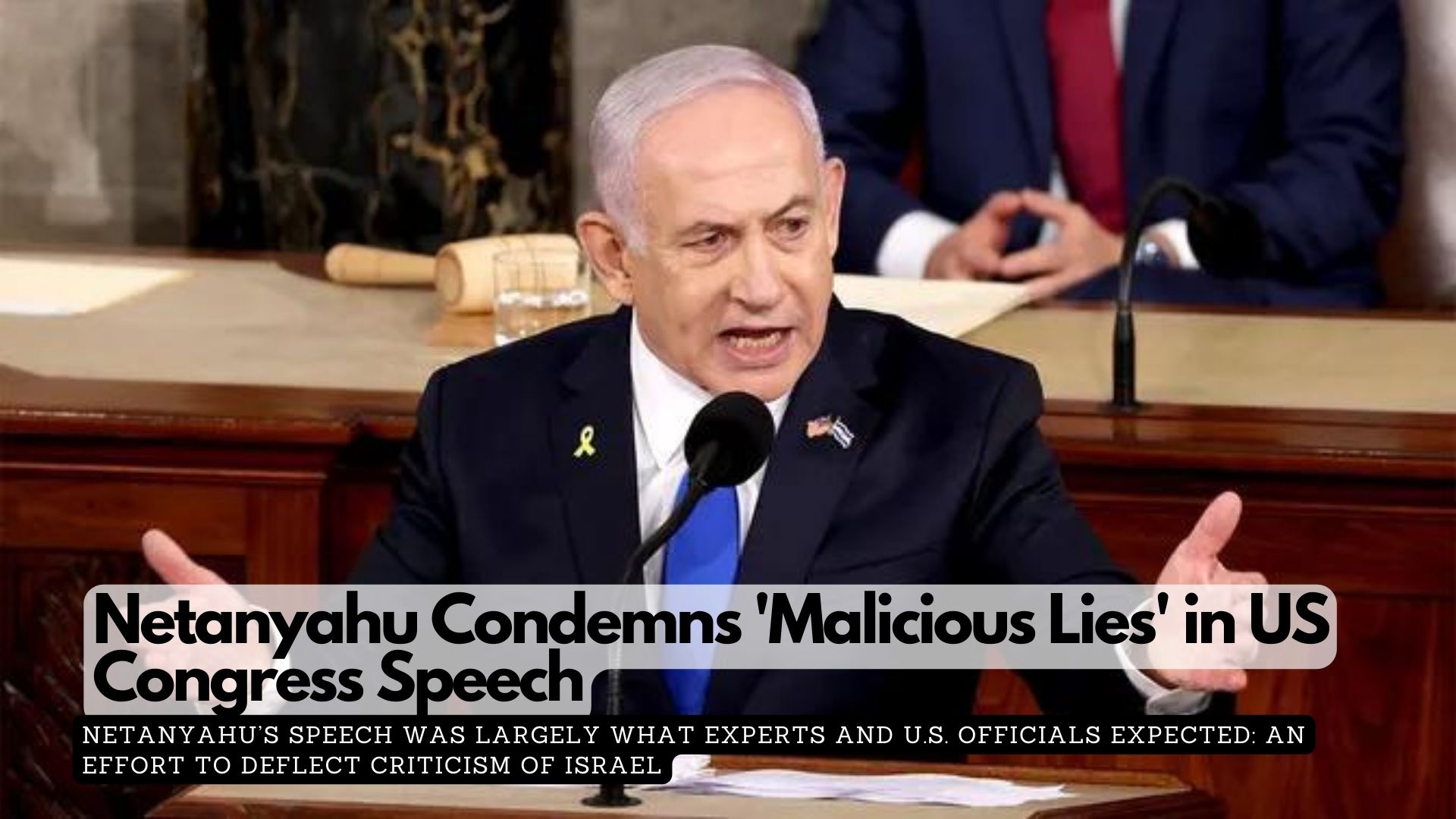In a 52-minute address to the US Congress, Israeli Prime Minister Benjamin Netanyahu emphasised the importance of US-Israel solidarity amidst the escalating war in Gaza while issuing a warning against rising antisemitism.
Netanyahu’s speech was largely what experts and U.S. officials expected: an effort to deflect criticism of Israel by framing its war as an existential battle for its survival in an effort to maintain bipartisan U.S. support. “For the forces of civilisation to triumph, America and Israel must stand together. Because when we stand together, something very simple happens: We win, they lose.” Netanyahu said.
Netanyahu asserted, “The hands of the Jewish state will never be shackled. Israel will always defend itself.” The Israeli PM made no mention of ongoing ceasefire negotiations despite international pressures for progress. However, while expressing gratitude for bipartisan support in the US, he said, “As we defend ourselves on all fronts, I know that America has our back, and I thank you for it—all sides of the aisle.”
Addressing antisemitism, Netanyahu condemned what he termed as ‘malicious lies’ aimed at delegitimizing Israel and demonising Jews worldwide. “Antisemitism is the world’s oldest hatred,” he asserted. “Just as malicious lies were levelled for centuries at the Jewish people, malicious lies are now being levelled at the Jewish state. The outrageous slanders that paint Israel as racist and genocidal are meant to delegitimize Israel, to demonise the Jewish state, and to demonise Jews everywhere.”
